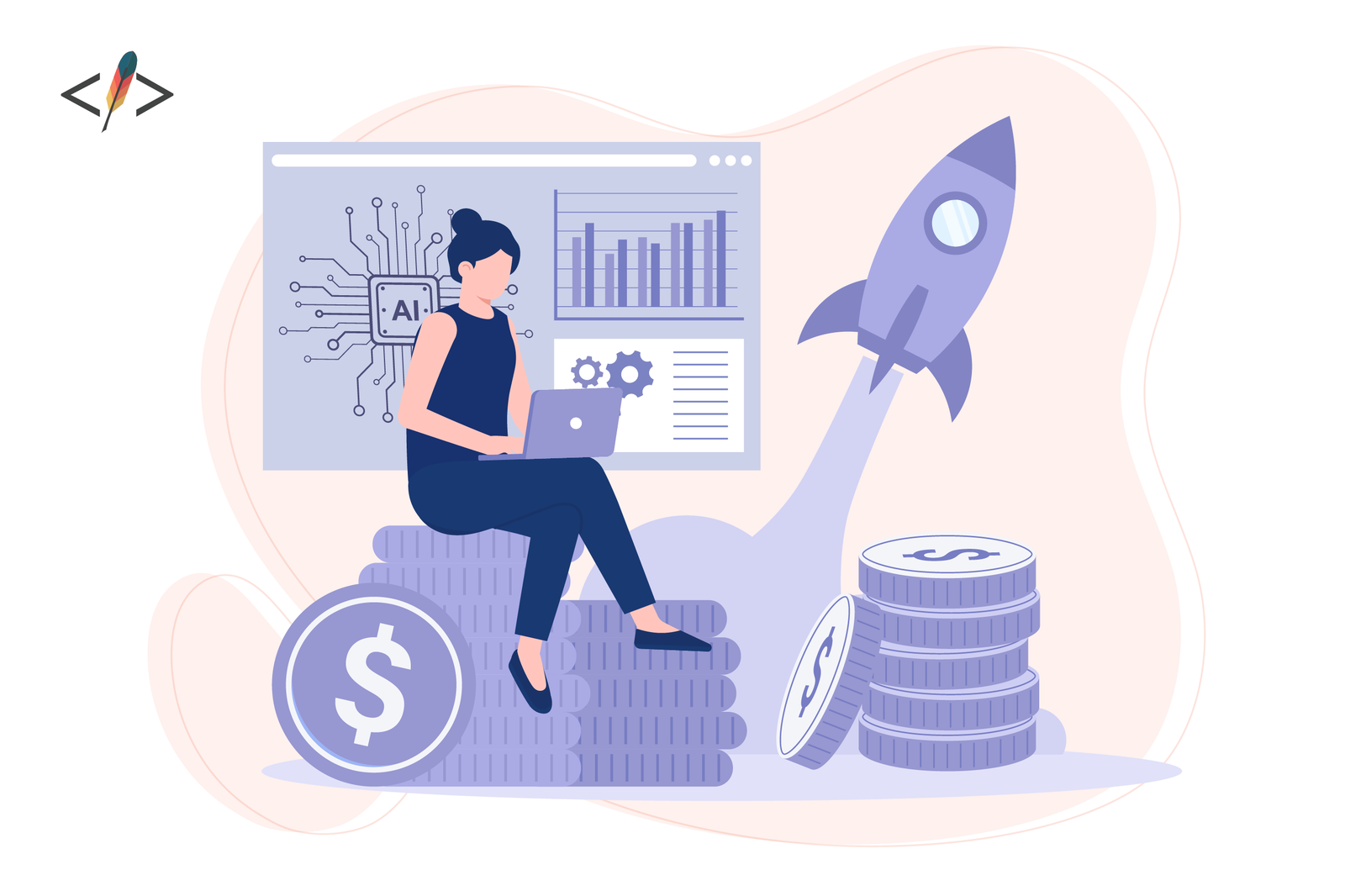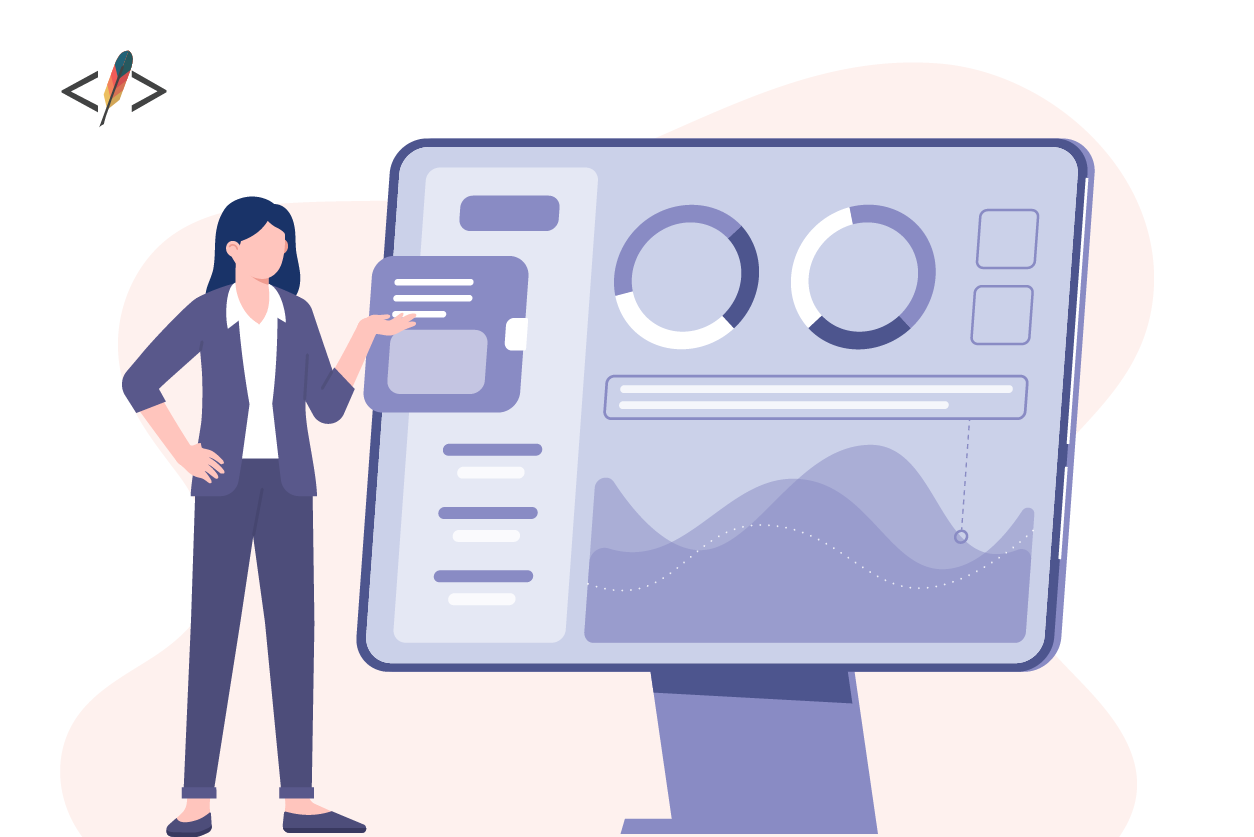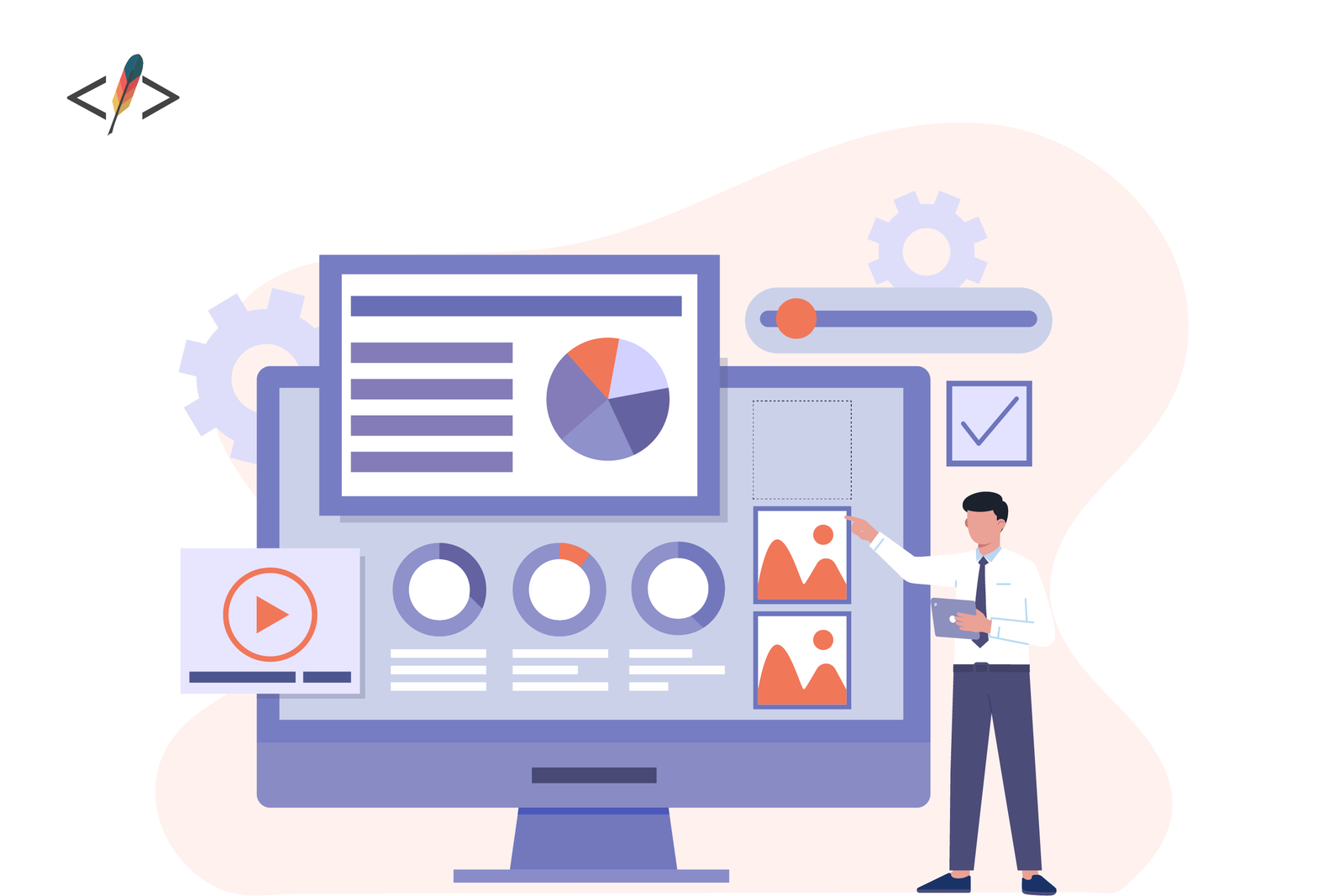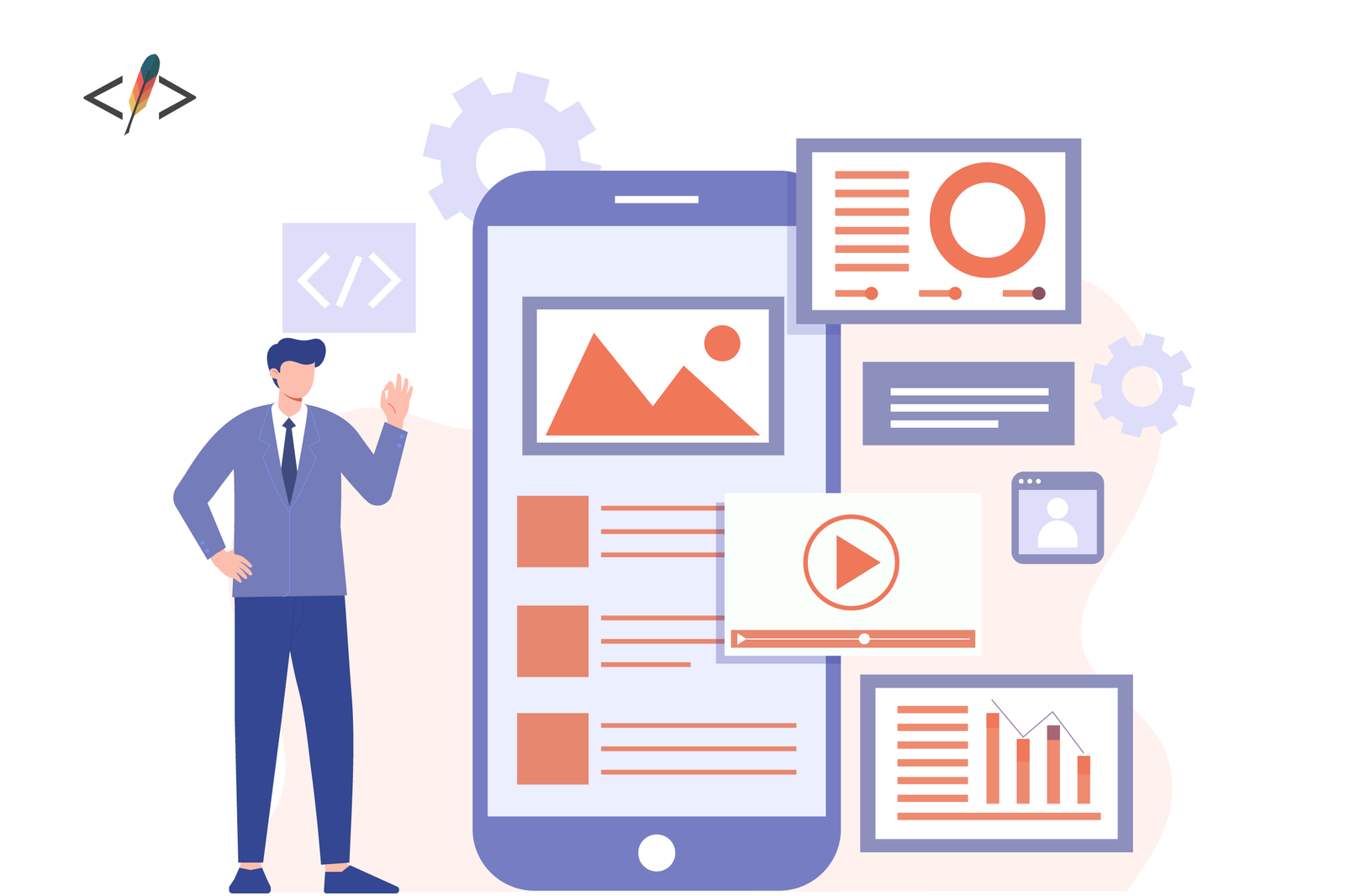

Top 20 Companies Using AI to Scale Their Business
AI enhances business scalability by driving growth across sectors. Scaling involves increasing operations and revenue without proportional cost rises. AI aids this through automation, customer service, marketing, operations, product development, sales, decision-making, and fraud detection. Top companies like Amazon, Netflix, and Microsoft use AI to optimize their processes and achieve growth.

Artificial intelligence (AI) enables business scalability in today's digital landscape. As AI advances, companies across diverse sectors leverage its capabilities to drive growth and success.
What is scalability, and how does AI facilitate it? In this blog post, the experts at Codepoet will examine the top 20 companies using AI to scale their operations and provide all the insights you need to do the same for your business.
What Is Scalability in a Business?
Scaling a business entails elevating its operations, enhancing capacity, and increasing revenue without a corresponding rise in cost. It involves expanding efficiently, profitably, and sustainably. Scaling up correctly can propel your business to new heights and ensure long-term success.
8 Ways AI & Machine Learning Help Businesses Scale Up
AI and machine learning empower businesses to operate more intelligently and efficiently. Explore eight strategies successful companies employ to leverage AI to scale their operations.
1. Automating Repetitive Tasks
Envision a series of recurring tasks such as email sorting, schedule management, or order processing. AI can effectively manage these repetitive tasks, allowing you to allocate time to critical aspects such as business expansion and customer care.
2. Enhancing Customer Service
Leveraging AI-driven chatbots enables you to offer round-the-clock customer service without the necessity of a team working nonstop. Chatbots adeptly handle routine inquiries, assist with orders, and troubleshoot issues. This ensures swift responses for your customers while alleviating concerns about gaps in customer service.
3. Personalizing Marketing Efforts
AI can scrutinize customer data to discern preferences and behaviors. By leveraging this information, you can craft personalized marketing campaigns that precisely target the appropriate audience with the optimal message at the most opportune time, enhancing engagement and driving sales.
4. Optimizing Operations
Machine learning enhances decision-making by analyzing vast datasets and identifying patterns that might otherwise go unnoticed. For instance, it can predict when certain products will deplete to enable prompt restocking or optimize your supply chain to reduce costs and increase efficiency.
5. Enhancing Product Development
AI can facilitate the development of new product ideas by analyzing trends and customer feedback. It can also streamline design and testing phases, expediting the process and enhancing efficiency. Rapid product promotion keeps you ahead of your competition.
6. Boosting Sales
AI tools can analyze sales data and customer behavior to determine optimal strategies. They can forecast which leads will likely convert and recommend the most effective approaches to secure more deals.
7. Improving Decision-Making
Utilizing machine learning enables data-driven decisions rather than relying on conjecture. AI can offer insights and forecasts that assist future planning, whether expanding into new markets, launching innovative products, or optimizing operations. This data-driven approach to decision-making provides the confidence and assurance necessary to guide your business toward success.
8. Detecting Fraud
AI can scrutinize extensive datasets to identify potentially fraudulent activities. It can detect anomalies in transactions, behaviors, or patterns that might elude human analysts, resulting in faster and more precise fraud detection. As a result, businesses minimize financial losses, safeguard customer data, and uphold customer trust and credibility.
Top 20 Companies Using AI to Scale Up Today
Prepare to be inspired by the leading 20 companies leveraging AI to propel their growth! Spanning the technology, software, energy, and healthcare sectors, these pioneering businesses are at the forefront of harnessing AI for success.
- Darktrace
- Meta (Facebook)
- Upstart
- HubSpot
- Spotify
- Microsoft
- C3.ai
- Netflix
- Uber
- Alphabet (Google)
- Amazon
- Salesforce
- Adobe
- JPMorgan Chase
- Walmart
- Siemens
- General Electric (GE) Vernova
- IBM
- Johnson & Johnson
- Procter & Gamble
1. Darktrace
Industry: Cybersecurity
Established: 2013
Q1 2024 Revenue: $161.6 Million (+28% YoY)
How Darktrace Uses AI:
AI-Driven Threat Protection: Darktrace employs AI to detect and counter cyber threats swiftly.
Email Security: AI safeguards against phishing attacks by scrutinizing email content and sender behavior.
Self-Learning: The AI continuously learns the expected behavior of a network, identifying anomalies to shield businesses from cyberattacks.
2. Meta (Facebook)
Industry: Social Media
Established: 2004
Q1 2024 Revenue: $36.45 Billion (+27% YoY)
How Facebook Uses AI:
Content Moderation: AI enhances user experience by identifying and removing inappropriate or harmful posts.
Personalized Feeds: AI tailors news feeds based on user interests and interactions, maintaining engagement and activity.
Facial Recognition: AI-powered features facilitate the tagging of other users in photos and bolster security measures.
3. Upstart
Industry: Financial Technology
Established: 2012
Q1 2024 Revenue: $128 Million (+24% YoY)
How Upstart Uses AI:
Credit Scoring: Upstart employs AI to evaluate creditworthiness by analyzing thousands of data points, thereby approving loans for a broader demographic.
Loan Approval: AI expedites the loan approval process to enhance customer satisfaction—most loans are approved within minutes.
Risk Assessment: AI forecasts the probability of loan defaults, enabling Upstart to mitigate risk and offer more competitive rates.
4. HubSpot
Industry: Inbound Marketing & Sales Software
Established: 2006
Q1 2024 Revenue: $617.4 Million (+23% YoY)
How HubSpot Uses AI:
Marketing Automation: AI streamlines marketing operations such as email campaigns, enhancing productivity and time management.
Sales Forecasting: AI anticipates sales patterns, enabling sales teams to concentrate on high-potential leads.
Customer Service Bots: AI-driven chatbots aid customers by addressing inquiries and offering 24/7 assistance.
5. Spotify
Industry: Music Streaming
Established: 2006
Q1 2024 Revenue: $3.9 Billion (+20% YoY)
How Spotify Uses AI:
Personalized Playlists: Spotify employs AI algorithms to curate playlists tailored to your musical preferences, ensuring continuous engagement.
Music Recommendations: Spotify's AI provides recommendations for songs and artists that align with your tastes, facilitating the exploration of new music genres.
6. Microsoft
Industry: Technology
Established: 1975
Q1 2024 Revenue: $61.9 Billion (+17% YoY)
How Microsoft Uses AI:
Azure: Microsoft's Azure leverages AI within its cloud platform, offering a spectrum of AI functionalities like speech recognition, language comprehension, and image processing. Organizations can harness Azure to develop custom AI applications tailored to their needs.
Office 365 Productivity Tools: Microsoft integrates AI seamlessly into its Office 365 suite, enhancing productivity. For instance, AI-driven features in Excel facilitate data analysis, while Outlook uses AI to prioritize emails effectively.
Cortana: Microsoft's virtual assistant, Cortana, adeptly manages schedules, sets reminders, and swiftly retrieves information, showcasing AI's utility in everyday tasks.
7. C3.ai
Industry: Enterprise AI
Established: 2009
Q1 2024 Revenue: Estimated $84.45 Million (+17% YoY)
How C3.ai Uses AI:
Enterprise AI Solutions: C3.ai offers advanced AI solutions tailored for enterprises, aiding in operational optimization through predictive maintenance and enhanced supply chain efficiency.
Energy Management: Their expertise extends to energy management, where AI is pivotal in assisting energy companies with resource management, optimizing production processes, and mitigating costs effectively.
8. Netflix
Industry: Entertainment
Established: 1997
Q1 2024 Revenue: $9.4 Billion (+15% YoY)
How Netflix Uses AI:
Content Recommendations: Netflix employs AI to curate personalized content recommendations, analyzing viewer preferences to suggest similar shows and movies, enhancing engagement.
Content Creation: AI guides Netflix in strategic content decisions, analyzing trends to inform new content creation and acquisition strategies.
Dynamic Pricing: Netflix utilizes AI for dynamic pricing, adjusting subscription fees based on customer behavior and market dynamics, to optimize pricing strategies for maximum revenue and customer satisfaction.
9. Uber
Industry: Transportation
Established: 2009
Q1 2024 Revenue: $10.1 Billion (+15% YoY)
How Uber Uses AI:
Route Optimization: AI helps Uber drivers optimize routes for efficiency and fuel savings.
Dynamic Pricing: AI-driven dynamic pricing ensures fare adjustments based on demand, benefiting both drivers and Uber in revenue optimization.
Fraud Detection: AI is integral in detecting and mitigating fraudulent activities, contributing significantly to safety and maintaining trust within the platform.
10. Alphabet (Google)
Industry: Technology
Established: 1998
Q1 2024 Revenue: $80.5 Billion (+15% YoY)
How Google Uses AI:
Search Algorithms: Google harnesses advanced search algorithms to enhance result relevance and personalization, streamlining user search experiences.
Google Assistant: Google Assistant leverages AI capabilities to comprehend and execute voice commands, ranging from setting reminders to providing informative responses.
Ad Targeting: Google employs AI for precision-targeted advertising, leveraging user data analysis to tailor advertisements, thus enhancing ad efficacy and revenue generation.
11. Amazon
Industry: E-commerce
Established: 1994
Q1 2024 Revenue: $143.3 Billion (+13% year-over-year)
How Amazon Uses AI:
Personalized Recommendations: Amazon employs AI-driven personalized recommendation systems to analyze user preferences and suggest relevant products, thereby enhancing sales through targeted marketing.
Warehouse Robots: Amazon utilizes intelligent robotics to streamline warehouse operations, facilitating swift item organization, movement, and packaging, thereby optimizing efficiency and cost-effectiveness.
Voice Assistants: Amazon's voice assistant, Alexa, integrates AI capabilities to interpret and act upon user voice commands, providing a seamless interactive experience.
12. Salesforce
Industry: CRM Software
Established: 1999
Q1 2024 Revenue: $8.25 Billion (+11% YoY)
How Salesforce Uses AI:
Einstein AI: Salesforce's Einstein AI platform offers advanced analytics across sales, marketing, and customer service domains, empowering businesses to derive actionable insights for informed decision-making.
Predictive Analysis: Salesforce leverages AI-driven predictive analysis to anticipate customer behavior, enabling businesses to fine-tune and optimize their marketing strategies effectively.
13. Adobe
Industry: Software
Established: 1982
Q1 2024 Revenue: $5.18 Billion (+11% YoY)
How Adobe Uses AI:
Creative Cloud Automation: Adobe's Creative Cloud integrates sophisticated AI capabilities to automate intricate tasks such as image editing, thereby enhancing user efficiency and productivity.
Marketing Analytics: Adobe leverages AI in marketing analytics, delivering comprehensive insights into campaign performance that enable businesses to refine and optimize their marketing strategies effectively.
Customer Insights: AI analyzes customer feedback and interactions to provide actionable insights. This helps businesses improve products and services to meet customer needs.
14. JPMorgan Chase
Industry: Finance
Established: 2000
Q1 2024 Revenue: $42.5 Billion (+8% YoY)
How JPMorgan Chase Uses AI:
Fraud Detection: JPMorgan Chase employs advanced AI systems for robust fraud detection, swiftly identifying and thwarting fraudulent transactions to safeguard financial assets.
Risk Management: The bank utilizes AI in comprehensive risk management practices, effectively mitigating financial risks and leveraging data analytics to make informed decisions based on economic indicators and market trends.
Algorithmic Trading: JPMorgan Chase harnesses AI capabilities in algorithmic trading, crafting sophisticated trading strategies that enable clients to execute innovative and profitable trades in dynamic market environments.
15. Walmart
Industry: Retail
Established: 1962
Q1 2024 Revenue: $161.5 Billion (+6% YoY)
How Walmart Uses AI:
Inventory Management: Walmart employs AI in inventory management to forecast demand for products, optimizing inventory levels and minimizing stockouts and surplus items.
Price Optimization: AI-driven price optimization allows Walmart to analyze pricing dynamics, ensuring competitive pricing strategies that attract a broader customer base.
Personalized Shopping: Walmart utilizes AI for personalized shopping experiences, leveraging customer preferences and purchase histories to curate tailored product recommendations, that enhance the shopping journey.
16. Siemens
Industry: Industrial Manufacturing
Established: 1847
Q1 2024 Revenue: $19.98 Billion USD (+6% YoY)
How Siemens Uses AI:
Autonomous Systems: AI drives autonomous systems like vehicles and industrial robots, enhancing productivity and minimizing errors.
Predictive Maintenance: Siemens leverages AI for predictive maintenance, foreseeing machine maintenance needs to lower downtime and costs effectively.
Energy Optimization: AI's role extends to energy optimization in factories, streamlining energy consumption for enhanced efficiency and sustainability.
Smart Grids: In smart grids, AI is vital in managing energy supply and demand, ensuring reliable and efficient power distribution.
17. General Electric (GE) Vernova
Industry: Energy
Established: 2021
Q1 2024 Revenue: $7.3 Billion (+6% YoY)
How GE Uses AI:
Wind Turbine Optimization: GE utilizes AI to fine-tune wind turbines, optimizing energy production for increased efficiency and profitability in wind farms.
Grid Stability: AI aids GE in maintaining grid stability by predicting energy demand and ensuring a dependable power supply.
Emission Reductions: AI contributes to emissions reduction at GE Vernova by optimizing power plant operations to align energy production with eco-friendly standards.
Renewable Energy Integration: AI integrates renewable energy sources like wind and solar power into the electricity system, facilitating a seamless transition to sustainable energy practices.
18. IBM
Industry: Technology & Consulting
Established: 1911
Q1 2024 Revenue: $14.5 Billion (+3% YoY)
How IBM Uses AI:
Watson AI: IBM’s Watson AI platform is a versatile tool for businesses spanning diverse sectors, enabling tasks such as disease diagnosis, financial risk management, and customer service via advanced chatbots and virtual assistants.
19. Johnson & Johnson
Industry: Healthcare
Established: 1886
Q1 2024 Revenue: $21.4 Billion (+2% YoY)
How Johnson & Johnson Uses AI:
Personalized Medicine: AI tailors treatments based on individual genetic profiles, enhancing efficacy and patient outcomes in personalized medicine.
Robotic Surgery: Robotic surgery, driven by AI, refines precision, shortens recovery periods, and bolsters patient safety.
Medical Imaging: AI scrutinizes images to identify diseases quickly, elevating diagnostic precision and patient management.
20. Procter & Gamble
Industry: Consumer Goods
Established: 1837
Q1 2024 Revenue: $20.2 Billion (+1%)
How P&G Uses AI:
Supply Chain Management: P&G leverages AI for supply chain optimization, forecasting product demand and inventory management to cut expenses and ensure timely availability.
Product Development: P&G utilizes AI to balance customer feedback with trending market dynamics, facilitating the creation of desirable products.
Leverage AI in Web & Software Development with Codepoet
These 20 companies demonstrate the remarkable potential of AI in scaling businesses across diverse industries. From enhancing customer experiences to streamlining operations, AI is revolutionizing business growth and success in the digital era.
If you're interested in discovering how AI might benefit your business operations, reach out to Codepoet today. Our expert web and software development teams harness the power of AI to provide clients with cutting-edge solutions.
Let us show you how AI can elevate your business to new heights!



